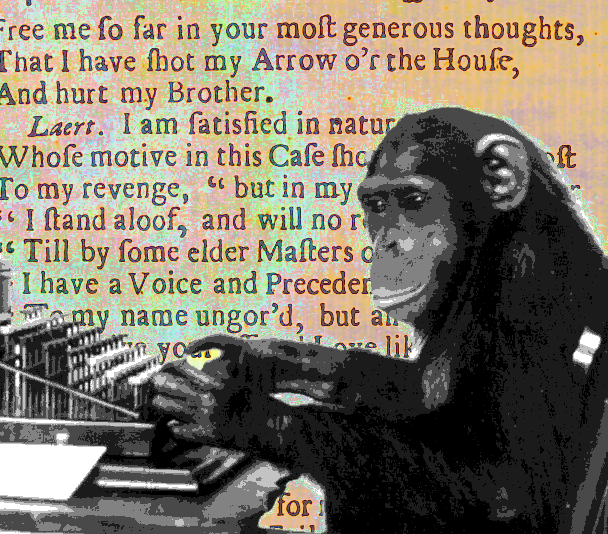Accidental Shakespeare studied
 Mathematicians have challenged the Infinite Monkey Theorem.
Mathematicians have challenged the Infinite Monkey Theorem.
A study from the University of Technology Sydney (UTS) has found that even with billions of years and a massive population of chimpanzees, it would be impossible to recreate the complete works of Shakespeare purely by chance.
The finding challenges the popular Infinite Monkey Theorem, which suggests that a randomly typing monkey could, given infinite time, eventually produce all of Shakespeare’s work.
However, the new research led by Associate Professor Stephen Woodcock and mathematician Jay Falletta asserts that under the constraints of our finite universe, the theorem is misleading.
The theorem has appeared widely in pop culture, including in The Simpsons and the Hitchhiker’s Guide to the Galaxy, to illustrate the principles of probability.
While the theory assumes an infinite number of monkeys or an endless timespan, the UTS study recalculates using practical limits, based on an estimated universe lifespan of about 10100 years and the current global chimpanzee population.
“We decided to look at the probability of a given string of letters being typed by a finite number of monkeys within a finite time period,” Woodcock explained.
The researchers assumed a keyboard with 30 characters and calculated a chimp typing one keystroke per second.
The findings revealed a roughly 5 per cent chance of a single chimp typing the word “bananas” in its lifetime, yet no realistic probability of reproducing all of Shakespeare’s 884,647 words before the universe’s end.
Even with an increased number of typists or improved typing speeds, the orders of magnitude required make “monkey labour” implausible for non-trivial works, according to the study.
The UTS paper reframes the thought experiment as the ‘Finite Monkeys Theorem’.
This concept highlights the disconnect between idealised infinite models and finite reality, joining the theorem with probability paradoxes like Zeno’s and the St Petersburg paradox. “The Infinite Monkey Theorem only considers the infinite limit, which is not plausible for our universe,” said Woodcock.







 Print
Print